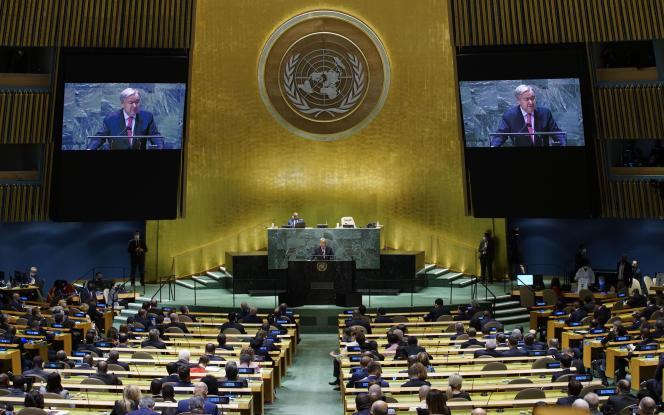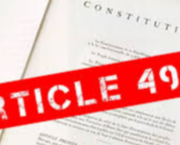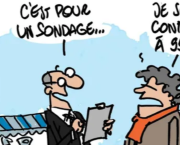
World peace since WW2
 4 min
4 min
World peace since WW2
The WW2 was a general trauma. The global institutions were born with the hope of establishing a new world order based on diplomacy and discussion in order to reduce tensions and conflicts of all kinds. But have they really achieved their goal of global peace?
The development of global economic institutions makes conflicts between states counterproductive. In 1947, the GATT negotiating rounds led to a significant reduction in customs duties, which favoured international trade. Countries will then have more interest in specialising their production in the sector where they have a comparative advantage over other states in order to use their productive force in the most efficient way possible.
The consequence of this phenomenon of increased specialisation thanks to the GATT agreements will in theory make it possible to pacify relations between states by creating a strong interdependence between them. The producing state will have to export to dispose of surplus production, and will have to import to ensure its population access to other essential resources that it has ceased to produce. This mechanism should therefore deter states from going to war and thus lead to world peace.
However, this principle soon found its limit in the middle of the 20th century: for it was based on a liberal ideology that was to be strongly contested by a large part of the world.
The Cold War is characterised by the absence of frontal conflicts between the two great powers thanks to the "balance of terror" but not thanks to the UN, which suffered from a structural problem. The US and the USSR had a veto power that allowed them to block any action regardless of the majority opinion of the Security Council.
But the organisation will try to act even without being able to commit itself formally. For example, during the Vietnam War Secretary General U Thant played an important role in talking to the warring parties and his efforts were crowned with success at the 1973 Paris conference. Thus it is clear that the influence of the UN can extend beyond the mere issuing of decrees. Its diplomatic role can also be the source of an easing of tensions.
The USSR defeat allowed the global extension of the liberal model and, as anticipated in the first part, its implementation led to a decrease in conflicts between states. According to the UCDP, there were 53 inter-state armed conflicts at the end of the Cold War compared to 33 in 2013. This statistic does not, however, herald a decrease in violence. Indeed, today conflicts are taking on a new form. They no longer pit States against each other but States against terrorist organisations not recognised by international law and which are beyond the control of the UN.
It can therefore be said that globalised institutions have finally made relative peace between states possible. Indeed, even if conflicts can occur, they are often short and less violent thanks to the diplomatic action of the UN in particular.
However, this is not enough to speak of global peace because certain tensions seem to be beyond their control. But can we really expect more from these institutions, when we know that today the hotbeds of conflict are located in lawless areas or in countries where domestic law largely takes precedence over international law?









 English
English
 Français
Français
 Deutsch
Deutsch
 Italiano
Italiano
 Español
Español



 Contribute
Contribute








 You can support your favorite writers
You can support your favorite writers





